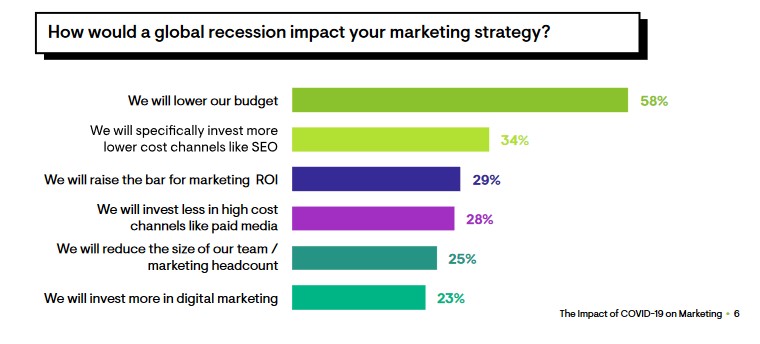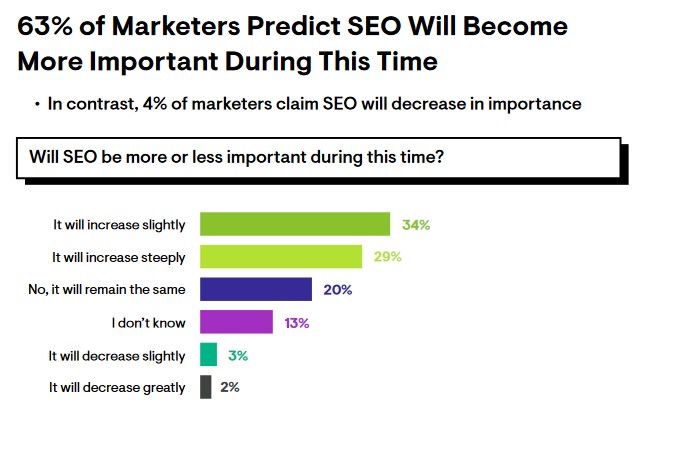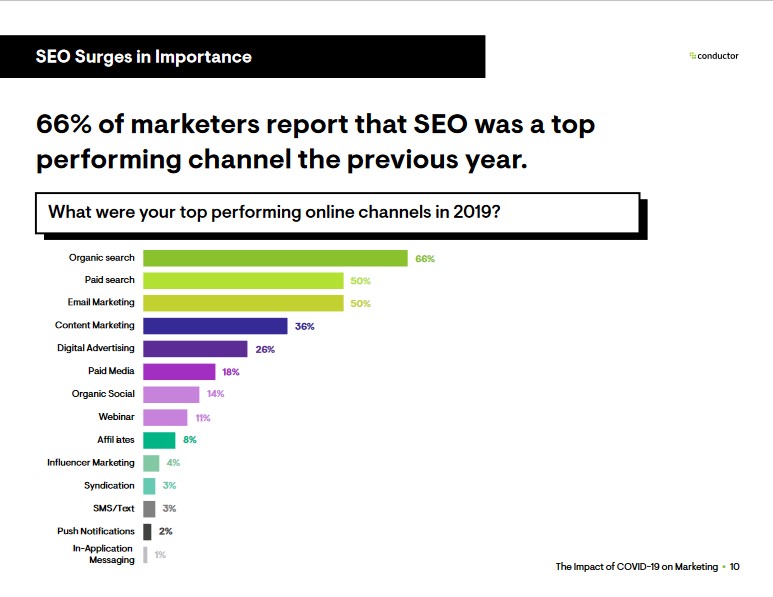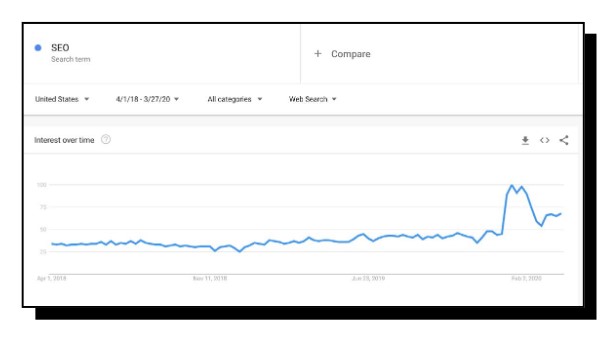Search engine optimization (SEO) is the most cost-effect way to improve the online presence of businesses and organizations. SEO becomes more important now, when media budgets are limited, yet most people are still stuck at home and turning to Google with all their burning questions. Using SEO (and content marketing), you can answer those questions and be found by these potential customers.
The lockdown and restrictions that followed the covid-19 pandemic, businesses had to choose between two options:
– Reduce their activity or cut it all together
– Move the physical activity to the digital domain (from ecommerce shops to virtual tours).
Businesses that already had an online presence could choose between the following:
– Cut down the advertising budgets, a decision that could lead to their temporal disappearance from the web
– Take advantage of the gap left by the competitors and increase their media budgets
– Focus on long-term, cost-effective marketing channels, such as SEO and branding.
Covid-19 impact on digital marketing – Statistics
- According to World Economic Forum, in Europe ad spend was 9% lower on average, and in China – 15% lower. TV ad spend suffered the biggest cut, while ad spend on digital video was increased slightly (4%).
- In a survey conducted by Marketing Week and Econsultancy on April 2020, about 50% of the participants said that they had to cut their ad spend, and only 7% tried to seize the opportunity and to increase budgets instead.
- In a survey by Conductor, 34% of the participants, mainly marketing managers and executives from the US, said that they plan to increase their investment in SEO and other low-cost channels. 63% predicted that SEO will become more important in the near future, and 66% reported that SEO was the most cost-effective marketing channel in previous year.



Google Trends also support this thesis:

So, why SEO and why now? Some Reasons:
Lockdown, social distancing, working from home, and the overall atmosphere of uncertainty have all deepened our reliance on the internet in general and in Google search in particular. First, we used Google to buy facemasks, learn about the covid-19 symptoms and how to get unemployment payments, and later – to buy more things and to find out when will the schools reopen (if any).
It means that Google’s ranking and visibility became more important than ever, especially for local businesses (such as grocery stores and restaurants, which transformed their physical existence into a digital one), but not exclusively. And how can a business improve its Google’s ranking and visibility? Using SEO, obviously.
SEO is a long-term, cost-effective marketing channel. It requires a relatively low investment, but the return on investment is higher and longer. SEO strategy planning and implementing is not completely free, nor it is a one-time activity, yet it allows businesses to constantly exist in the digital sphere, even when their budget is too tight to afford any type of paid advertising, from offline to social media and influencer marketing.
In other words, if in PPC and other paid advertising campaigns your digital presence completely vanishes once you pause your ad spend, in SEO, the results can be kept for a long time: optimized and high-ranking content can continue to generate traffic for years. Moreover, the search engine optimizing process usually improves the overall user experience, the site’s navigation and accessibility. So, what could possibly be wrong with that?
The corona virus SEO winners
Close to Home
The movement restrictions during covid19, the wish to support local businesses in times of financial crisis, and once again, the atmosphere of uncertainty – they all reflect on Google search. Users wanted to know what’s available near their home, which businesses are open and which restaurants offer delivery or outdoor dining.
During the full and partial lockdown, businesses had to be visible on Google My Business and Google Maps in order to survive. Google adapted quickly to these changes and offered new features to help businesses to display their availability, update changes in the business hours, and highlight their adjustments to the current requirements. For example, food businesses can now add features such as deliveries, no-contact takeout, outdoor dining, etc.
When Ecommerce killed the mall (and Zoom killed the gym)
Ecommerce was a lifeline form many businesses, both during lockdown and afterwards, as the fear of the virus spread continued (and will probably continue for some time) to keep customers away from crowded malls and streets. In a survey held in the US in April 2020, 67% of the participants reported reducing their shop visits, and more than 50% said that they increased their online shopping. According to a survey held in the UK, the number of small businesses that transformed to online businesses increased in 50% on March 2020.
Although the covid-19 pandemic caused a drop in the demand in several industries (cosmetics and international travel, among others), it also created new opportunities. If at first it seems like only masks and alcogel dealers are on the winners’ side, in time, and with the prolonged home confinement, the demand increased and broadened in other areas – from home fitness equipment, to baking, gardening and home styling accessories, to office equipment for work from home.
As more people shop, work and study from home, there are more opportunities, and not only for ecommerce sites, but also for bloggers and content providers. As people wanted to learn how to use all these new baking equipment, how to practice yoga from their living room, how to improve their productivity while working from home, and generally – how to spend time without all the distraction of the outside world.
And who is the virtual assistant they are most likely to approach with these burning questions and needs? In most cases, it will be Google. And which businesses will they find in the top search results? Not those who refused to invest in SEO.
